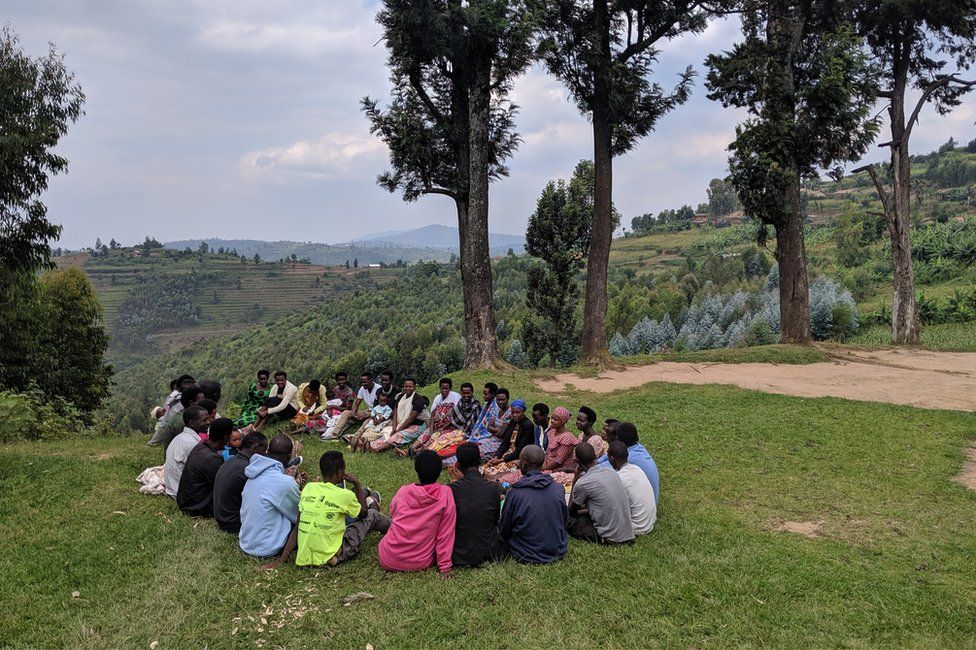
Continuing our series of articles from our Annual Report 2020/21, we outline here our work on our Young Survivors Counselling Project.
Thousands of youthful survivors of the 1994 genocide are only now confronting the horror of seeing their families murdered. They struggle to make ends meet, alone and vulnerable, prone to depression and hopelessness.
Through support from our partner Network for Africa we are working with AERG to train counsellors who in turn train local people to become counsellors. The counsellors are themselves survivors who have endured trauma, so they are familiar with the challenges faced by people with depression and other mental health issues. The counsellors are coordinated by SURF Senior Key Worker, Emilienne Kambibi
In 2020 we supported 263 young genocide survivors through our group counselling programme. They were divided into 12 groups and met twice a month, supported by two peer support counsellors per group who were selected by the group members. These peer support counsellors provided a vital role moderating sessions and referring any participants who needed extra support for individual counselling. By the end of the year, most participants felt positively about their future, whereas at the start they had little hope. Their isolation has reduced, and their self-esteem has increased. They are now able to cope when things go wrong, using the coping techniques they have been taught, dealing with trauma and its symptoms.
Government officials have remarked on the impact, citing peace building and reconciliation, an unintended consequence. Looking ahead, we hope to provide 60 participants with entrepreneurship training and loans to set up their own businesses. We are also raising funds to offer free childcare for the mothers who have to bring their babies and toddlers to the group counselling sessions.
A few highlights:
- 263 young genocide survivors were enrolled in peer support groups where they received group counselling and support, bringing the total helped since the start of the project to more than 1,300.
- 24 new Peer Support Counsellors were trained to run the peer counselling groups. They also keep a watchful eye on their group members, referring those that need extra support to SURF’s counsellors. So far 130 peer support counsellors have been trained.
- 461 home visits were made to offer extra support to particularly vulnerable participants.
- 856 participants were offered individual counselling.
- 1,340 participants received telephone counselling during COVID-19 lockdowns.
- 24 new Health Workers were trained in recognising signs of mental ill-health, e.g. anxiety, depression and post-traumatic stress disorder, bringing the total since the start of the project to 102. This ensures that knowledge is embedded and has long-term sustainability.
Our plan is to extend this project further over 2021 to meet the demand for the service, on which we will report back further in due course.
“I have really learnt much from this counselling service, and I am thankful for the support, which has helped me to overcome my depression and anxiety. I have learnt different techniques that can help me when I face stress symptoms. Being in the group has helped our hearts and now we are dreaming of changing and developing ourselves.” Beneficiary of the Survivors Fund (SURF) Youth Counselling Project made possible through the funding and support of Network for Africa.
